QI Power Hour Webinars
Quality improvement learning for on-the-go learners
As part of the Health Quality Council's ongoing commitment to share knowledge, best practices, and innovative ideas, we are pleased to offer QI Power Hour, a free monthly webinar series that delves into a variety of topics related to quality improvement.
Join us each month to learn about quality improvement and connect with other like-minded learners in Saskatchewan, Canada, and abroad! Our webinars bring together improvers from a variety of sectors interested in learning about leading and supporting quality improvement efforts in health and health care.

Advancing the Patient Medical Home Model in Rural Saskatchewan: Insights from a pilot project in Swift Current
- Speaker(s)
- Dr. Coralie Darcis & Dr. Emmett Harrison
The Saskatchewan Health Quality Council is hosting April’s QI Power Hour: Creating Joy in Work, virtually on Friday, April 11, from 9 – 10 a.m. with special guest, Dr. Amar Shah.
- Date & Time
- May 23, 2025 9:00 am-10:00 am CST
- Location
- Online webinar
- Event Host
- HQC
Past QI Power Hour webinars

Creating Joy in Work
- Speaker(s)
- Dr. Amar Shah
The Saskatchewan Health Quality Council is hosting April’s QI Power Hour: Creating Joy in Work, virtually on Friday, April 11, from 9 – 10 a.m. with special guest, Dr. Amar Shah.
- Date & Time
- April 11, 2025 9:00 am-10:00 am CST
- Location
- Online webinar
- Event Host
- HQC

Humans Leading Humans – How Human Centered Leadership is Making a Difference
- Speaker(s)
- Wendy Campbell (Trillium Health Partners) & Katey Knott (Trillium Health Partners)
Guest speakers from Trillium Health Partners are joining us on March 28, 2025 to discuss human centered leadership in health care.
- Date & Time
- March 28, 2025 9:00 am-10:00 am CST
- Location
- Online webinar
- Event Host
- HQC

What does it really take to create a culture of continuous improvement?
- Speaker(s)
- Dr. Amar Shah
Dr. Amar Shah is joining us on February 21, 2025 to discuss how to create a culture of continuous improvement.
- Date & Time
- February 21, 2025 9:00 am-10:00 am CST
- Location
- Online webinar
- Event Host
- HQC

CPR Racism: A guide for health care providers to address racism in health care
- Speaker(s)
- Dr. Holly Graham
Dr. Holly Graham is joining us on January 31, 2025, to discuss racism in health care.
- Date & Time
- January 31, 2025 9:00 am-10:00 am CST
- Location
- Online webinar
- Event Host
- HQC

Increasing primary care access: Practical, clinic driven quality improvement
- Speaker(s)
- Aubrey Tollefson
Primary care nurse practitioner Aubrey Tollefson is joining HQC on Dec. 13 to discuss practical, clinic driven quality improvement and why it should matter to you. Participants will leave the session with an idea of how to set up a simple initiative in their own clinic or workspace to improve their clinic functioning, work/life balance, and patient satisfaction and safety.
- Date & Time
- December 13, 2024 9:00 am-10:00 am CST
- Location
- Online Webinar
- Event Host
- HQC
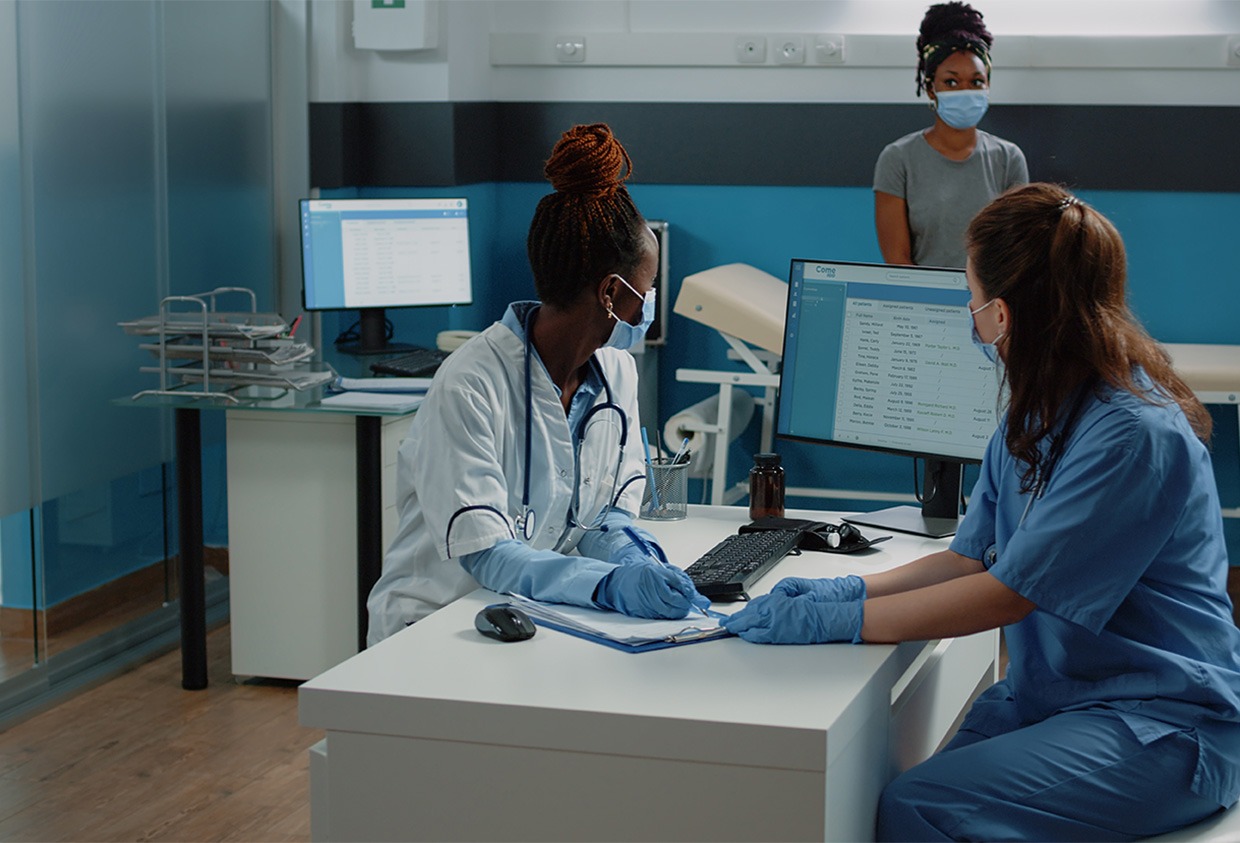
Administrative Burden: Integrating Human Factors and the BC Health Quality Matrix for Improvement
- Speaker(s)
- Allison Muniak & Jamie Duteil
Health Quality BC with the Ministry of Health and Doctors of BC are focused on the identification of physician administrative burden, including duplicative or overly complex paperwork, documentation or tasks that impact a patient’s timely access to quality care, and safety.
- Date & Time
- November 29, 2024 9:00 am-10:00 am CST
- Location
- Online Webinar
- Event Host
- HQC
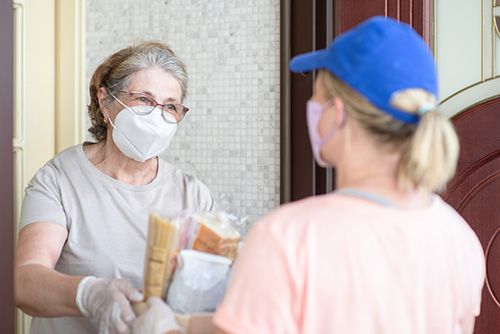
Social prescribing: Exploring community-led approaches to improve health systems
- Speaker(s)
- Yordanos Woldemariam
Social prescribing is a model that enables health care providers and social service professionals to connect individuals with non-clinical supports and community resources that address individual and community needs based on the social determinants of health.
- Date & Time
- March 15, 2024 9:30 am-10:30 am CST
- Location
- Online
- Event Host
- HQC

Combating the primary care crisis: quality improvement lessons learned from the frontline
- Speaker(s)
- Dr. Emmett Harrison
Session Description Primary care is in crisis. To help combat this trend, Dr. Emmett Harrison will discuss the power of quality improvement and share his lessons learned from the frontline as a family and emergency medicine physician in Swift Current. You will gain insight into his recent continuous quality improvement endeavours, including a Pharmacy Care […]
- Date & Time
- January 30, 2024 9:30 am-10:30 am CST
- Location
- Online
- Event Host
- HQC

Leading Change and Change Management: A synthesis of models (QI Power Hour)
- Speaker(s)
- Dave Broda
Leading change is inherent in any leadership role and while many of us have learned some theory on how to lead change, many of us go about it instinctively, without sound method.
- Date & Time
- November 24, 2023 9:30 am-10:30 am CST
- Location
- Online
- Event Host
- HQC

Advancing the Healthcare System Using Patient Reported Measures (QI Power Hour)
- Speaker(s)
- Alaa Aburub, Hammed Ejalonibu
The foundation of any learning health system (LHS) is the presence of a data infrastructure used to collect patients’ outcomes.
- Date & Time
- October 13, 2023 9:30 am-10:30 am CST
- Location
- Online
- Event Host
- HQC

Learning Health Systems in Canada: What do we Know? (QI Power Hour)
- Speaker(s)
- Dr. Gary Groot
The concept of Learning Health Systems is gaining traction in North America.
- Date & Time
- September 22, 2023 9:30 am-10:30 am CST
- Location
- Online
- Event Host
- HQC

The Patient’s Medical Home: Building the Health Care We Want and Need (QI Power Hour)
- Speaker(s)
- Dr. Ginger Ruddy
Patients, families, and clinicians alike agree that we need better health care if we want better health for everyone in our communities.
- Date & Time
- August 4, 2023 9:30 am-10:30 am CST
- Location
- Online
- Event Host
- HQC
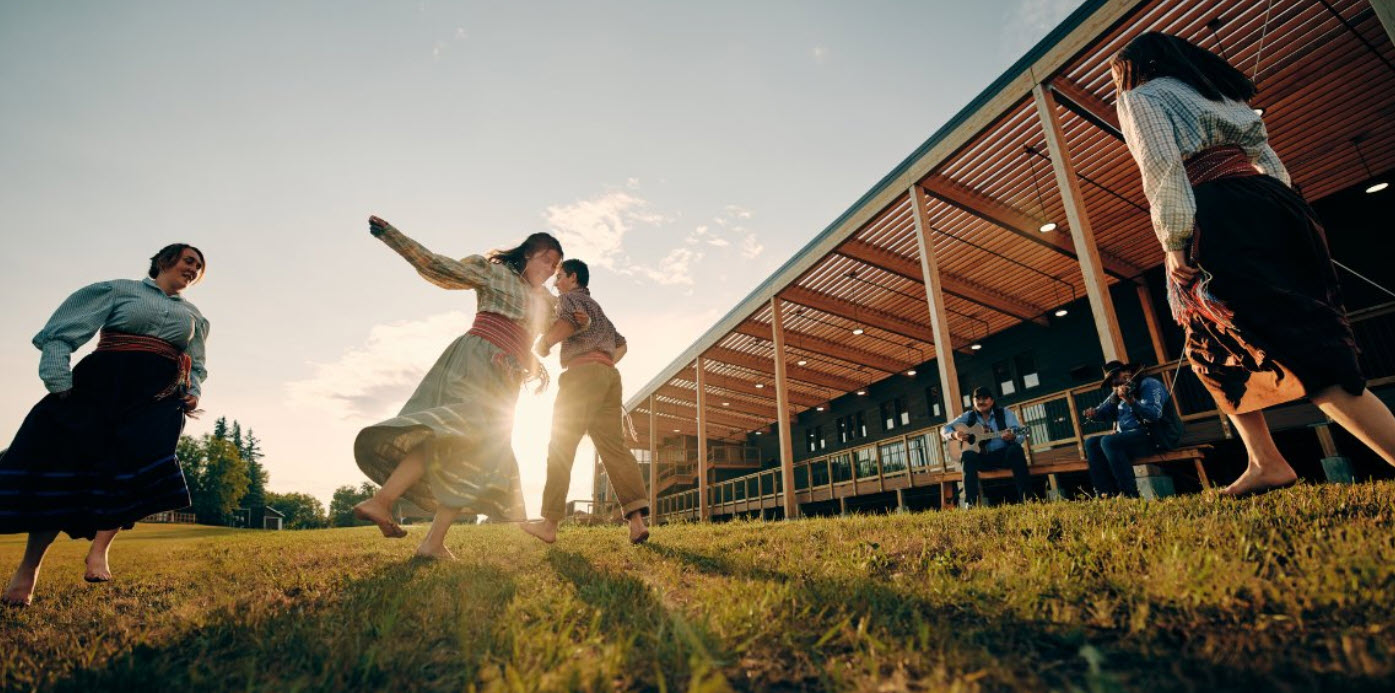
Answering the Call to Métis Wellness in Saskatchewan (QI Power Hour)
- Speaker(s)
- Tegan Brock, Senior Health Manager; Tanya Pruden, Director of Health
Métis Nation-Saskatchewan (MN-S) is the government that represents Métis citizens in Saskatchewan and MN-S Ministry of Health is responsible for improving the health and well-being of Métis citizens in Saskatchewan.
- Date & Time
- July 28, 2023 9:30 am-10:30 am CST
- Location
- Online
- Event Host
- HQC

Personal Ethics and Creating Ethical Space (QI Power Hour)
- Speaker(s)
- Willie J. Ermine, (M.Ed), emeritus professor First Nations University of Canada
Dr. Ermine will discuss the value of working within personal ethics and how to transform our encounters with the world into meaningful and lasting relationships.
- Date & Time
- June 19, 2023 10:00 am-11:00 am CST
- Location
- Online
- Event Host
- HQC

Embedding a Customer Focus: Methods 3sHealth Uses to Define and Measure Impacts on Patient Lives
- Speaker(s)
- Janice Reeves, Patient -and Family-Centred Care Lead, Jill Forrester, Continuous Improvement Director, Jennifer Fetch, Provincial Linen Services Director
This presentation will discuss a foolproof way to craft a strong problem statement that centers on the customer rather than on your team or business.
- Date & Time
- May 12, 2023 9:30 am-10:30 am CST
- Location
- Online
- Event Host
- HQC

The Transformation of Community Wellness Connections for Indigenous Youth
- Speaker(s)
- Lindsey Boechler, Research Manager, Saskatchewan Polytechnic
This presentation will discuss the value of virtual reality technology in improving access, quality, and the range of mental health support services and outline future plans to scale the initiative across multiple communities of varying Indigenous cultures.
- Date & Time
- April 28, 2023 9:30 am-10:30 am CST
- Location
- Online
- Event Host
- HQC

Leading a Team through Process Mapping (QI Power Hour)
- Speaker(s)
- Tami Waldron, Senior Improvement Lead, HQC
In this session, we will review what a process map is and how it can help teams assess their current state, identify areas for improvement, and work towards a new future state
- Date & Time
- March 24, 2023 9:30 am-10:30 am CST
- Location
- Online
- Event Host
- HQC

Men of the North – A Male Mental Health Support Program (QI Power Hour)
- Speaker(s)
- Christopher Merasty
Men of the North is a male support program that provides healthy opportunities to the male population in Saskatchewan.
- Date & Time
- February 10, 2023 9:30 am-10:30 am CST
- Location
- Online
- Event Host
- HQC

Informed Planning within the Saskatchewan Health Authority – Health System Measurement, Driver Diagrams, and Knowledge Translation (QI Power Hour)
- Speaker(s)
- Brad Boutilier, Josh Marko, Laura Schwartz, Nicole Ferguson
Guest speakers Session Research shows there are key characteristics of a high performing health system. What are those characteristics and how is the Saskatchewan Health Authority working to achieve them? In this webinar participants will: Note: This webinar will be recorded; by registering for this webinar you are providing your consent to this recording. Watch […]
- Date & Time
- January 27, 2023 9:30 am-10:30 am CST
- Location
- Online
- Event Host
- HQC

QI in Practice: Engaging youth through mentorship, programming, and partnerships (QI Power Hour)
- Speaker(s)
- Danielle Williams, Executive Director, Battlefords Concern For Youth Inc
In this webinar participants will learn how Battlefords Concern For Youth has grown from an outreach program to a mentorship program, and how they developed programming and partnerships to support youth in the community.
- Date & Time
- November 25, 2022 9:30 am-10:30 am CST
- Location
- Online
- Event Host
- Saskatchewan Health Quality Council

Back to Basics: Standard work – A Foundational Starting Point for Continuous Improvement (QI Power Hour)
- Speaker(s)
- Jennifer Wright
In this webinar participants will learn how creating standard work supports and accelerates improvement work.
- Date & Time
- November 4, 2022 9:30 am-10:30 am CST
- Location
- Online
- Event Host
- Health Quality Council

Desperately Waiting: Advocate’s Review of Mental Health & Addictions Services for Young People in Saskatchewan (QI Power Hour)
- Speaker(s)
- Lisa Broda, Marci Macomber
In this webinar participants will learn about how mental health, addiction, and problematic substance use are situated within the child rights context.
- Date & Time
- September 23, 2022 9:30 am-10:30 am CST
- Location
- Online
- Event Host
- Health Quality Council

What Matters to Older Adults? Rethinking Care in Aging and Older Adults (QI Power Hour)
- Speaker(s)
- Holly Schick and Linda Anderson, Saskatchewan Seniors Mechanism; Candace Skrapek and Kelly Corrine (KC) Hall, Saskatoon Council on Aging
July’s QI Power Hour features two Saskatchewan organizations focused on supporting older adults and senior care, Saskatchewan Seniors Mechanism and the Saskatoon Council on Aging.
- Date & Time
- July 15, 2022 9:30 am-10:30 am CST
- Location
- Online
- Event Host
- Health Quality Council

Land-Based Education: Embracing the Rhythms of the Earth (QI Power Hour)
- Speaker(s)
- Dr. Herman Michell, HQC Cultural Advisor and Prince Albert Grand Council consultant
In this session, participants can expect an introduction to how health and wellness is connected to the lands and waters First Nations occupy.
- Date & Time
- June 17, 2022 9:30 am-10:30 am CST
- Location
- Online
- Event Host
- Health Quality Council

Introduction to Program Evaluation (QI Power Hour)
- Speaker(s)
- Alvin Yapp
This session will introduce you to the concept of program evaluation and shares resources to help you get started evaluating your own programs.
- Date & Time
- May 20, 2022 9:30 am-10:30 am CST
- Location
- Online
- Event Host
- Health Quality Council

Breaking Down Wicked Problems – The Driver Diagram (QI Power Hour)
- Speaker(s)
- Doug Campbell, Director, Strategy and Innovation – Performance Measurement, Saskatchewan Health Authority
Doug Campbell from the Saskatchewan Health Authority shares how driver diagrams can be used to solve complex problems as well as how to determine a measurement framework from a driver diagram.
- Date & Time
- April 29, 2022 9:30 am-10:30 am CST
- Location
- Online
- Event Host
- Health Quality Council

Understanding Indigenous Wisdom & Social Innovation (QI Power Hour)
- Speaker(s)
- Diane Roussin, Project Director at The Winnipeg Boldness Project
Diane Rousson from the Winnipeg Boldness Project shares how social innovation tools that are rooted in Indigenous wisdom are being used to help to research and develop strategies to improve wellbeing in Winnipeg’s Point Douglas Community.
- Date & Time
- March 25, 2022 1:00 pm-2:00 pm CST
- Location
- Online
- Event Host
- Health Quality Council

Connecting Measurement and Improvement (QI Power Hour)
- Speaker(s)
- Brandon Bennett, ISC LLC
Brandon Bennett provides an introduction to the knowledge needed to improve systemic outcomes, how that knowledge is used in practice, and how measurement is connected to the improvement journey.
- Date & Time
- January 27, 2022 1:00 pm-2:00 pm CST
- Location
- Online
- Event Host
- HQC

Data For Good: Empowering Communities Through Data (QI Power Hour)
- Speaker(s)
- Kevin Hayes & Scott Wells
Kevin Hayes and Scott Wells from Data For Good Regina talk about what Data For Good is, who they help, and how you can get involved.
- Date & Time
- November 26, 2021 9:30 am-10:30 am CST
- Location
- Online
- Event Host
- HQC

Back to Basics: The Model for Improvement (QI Power Hour)
- Speaker(s)
- Glenda Beauchamp, Carla Flogan, and Ian Shaw
Going back to basics, we unpack the three questions of the Model for Improvement, its components and how it can be applied in the human services field.
- Date & Time
- October 29, 2021 9:30 am-10:30 am CST
- Location
- Online
- Event Host
- HQC

Learning through a pandemic: Developmental evaluation and vaccine delivery (QI Power Hour)
- Speaker(s)
- Dr. Gary Groot and Patrick Falastein
Dr. Gary Groot and HQC’s Patrick Falastein share how teams at the SHA, U of S and HQC came together to evaluate COVID vaccine roll-outs using a rapid feedback mechanism.
- Date & Time
- September 24, 2021 9:30 am-10:30 am CST
- Location
- Online
- Event Host
- HQC

The Indigenous Patient Journey Projects: Cycles of Trauma and Crisis (QI Power Hour)
- Speaker(s)
- Randal Bell
Randal Bell discusses the Alberta Health Services’ (AHS) Indigenous Patient Journey Projects: Cycles of Trauma and Crisis to capture the voice of lived experience.
- Date & Time
- July 9, 2021 9:30 am-10:30 am CST
- Location
- Online
- Event Host
- HQC

Strengthening Indigenous and Non-Indigenous Relationships through Dialogue (QI Power Hour)
- Speaker(s)
- Brad Bellegarde
In honour of National Indigenous History Month and National Indigenous Peoples Day, Brad Bellegarde shares his knowledge on how to strengthen relationships with Indigenous communities.
- Date & Time
- June 18, 2021 9:30 am-10:30 am CST
- Location
- Online
- Event Host
- HQC

The Problem with Problems: Getting Clear When Things Are Complex (QI Power Hour)
- Speaker(s)
- Glenda Beauchamp, Carla Flogan, & Jocelyn Watson
In this session, our speakers discuss the differences between simple, complicated, and complex problems and discover how you can best tackle them.
- Date & Time
- May 28, 2021 9:30 am-10:30 am CST
- Location
- Online
- Event Host
- HQC

Research and Development During a Pandemic (QI Power Hour)
- Speaker(s)
- Dr. Volker Gerdts
The University of Saskatchewan’s Vaccine and Infectious Disease Organization (VIDO) has been a leader in COVID-19 research and development since the emergence of SARS-CoV-2. Dr. Volker Gerdts talks about VIDO’s COVID-19 response and more.
- Date & Time
- April 23, 2021 9:30 am-10:30 am CST
- Location
- Online
- Event Host
- HQC
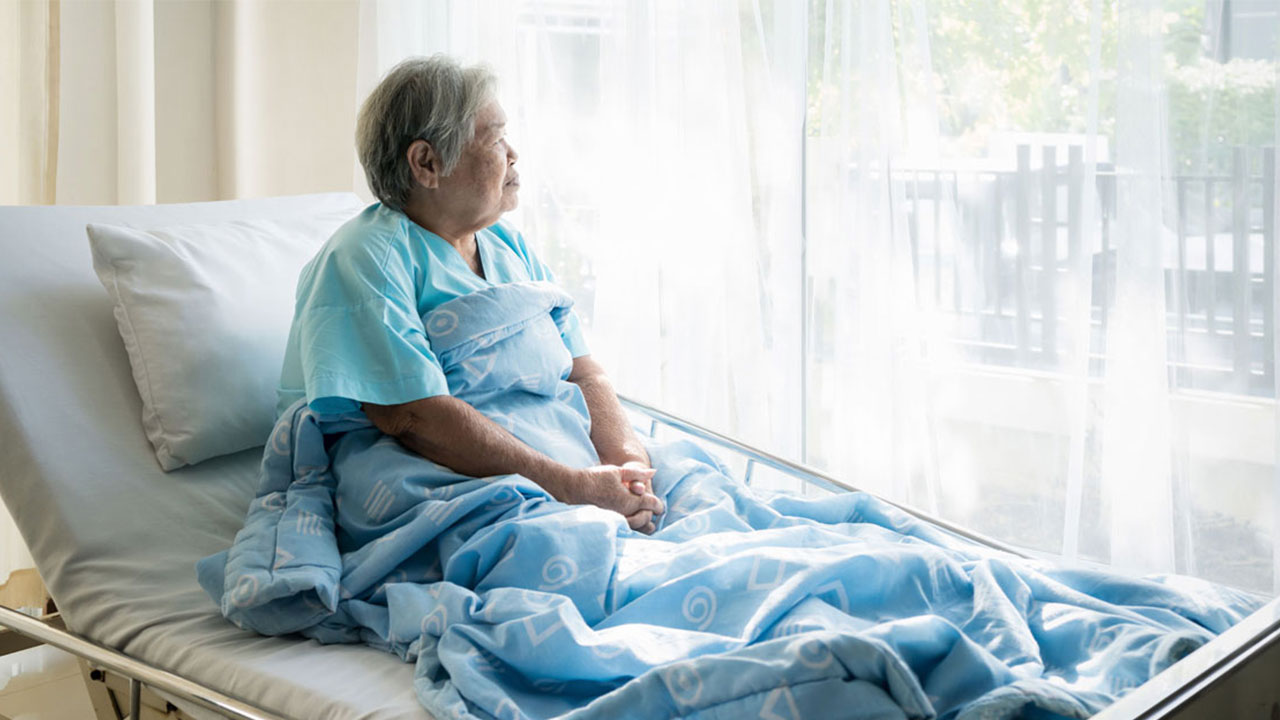
Essential Together: Safely Reintegrating Caregivers as Essential Care Partners During COVID-19 and Beyond (QI Power Hour)
- Speaker(s)
- Carol Fancott & Jessie Checkley
Carol Fancott and Jessie Checkley from Healthcare Excellence Canada talk about the Essential Together program as well as the importance of differentiating between visitors and essential care partners.
- Date & Time
- March 26, 2021 9:30 am-10:30 am CST
- Location
- Online
- Event Host
- HQC
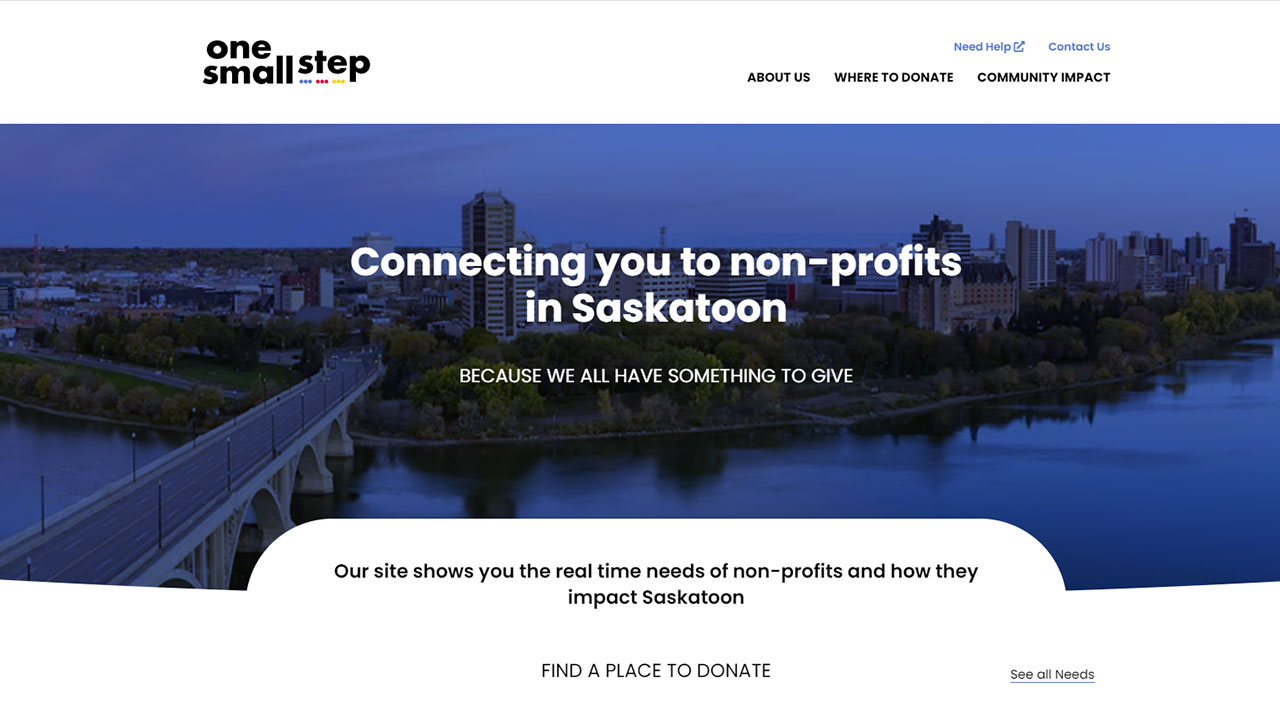
OneSmallStepSK.ca: An Innovative Digital Strategy for Non-Profits in Saskatoon (QI Power Hour)
- Speaker(s)
- Gregg Bamford, Katelyn Roberts, & Alice Kuipers
Have you heard about http://onessmallstepsk.ca? Gregg Bamford, Katelyn Roberts, and Alice Kuipers share the story of this innovative website that connects potential donors to non-profits.
- Date & Time
- January 15, 2021 9:31 am-10:30 am CST
- Location
- Online
- Event Host
- HQC

Coaching: Getting Past the Hype to Discover the Power of a Coaching Conversation (QI Power Hour)
- Speaker(s)
- Jennifer Klatt (Ehrmantraut)
In this session Jennifer Klatt talks about the power of an effective coaching conversation.
- Date & Time
- November 6, 2020 9:30 am-10:30 am CST
- Location
- Online
- Event Host
- HQC
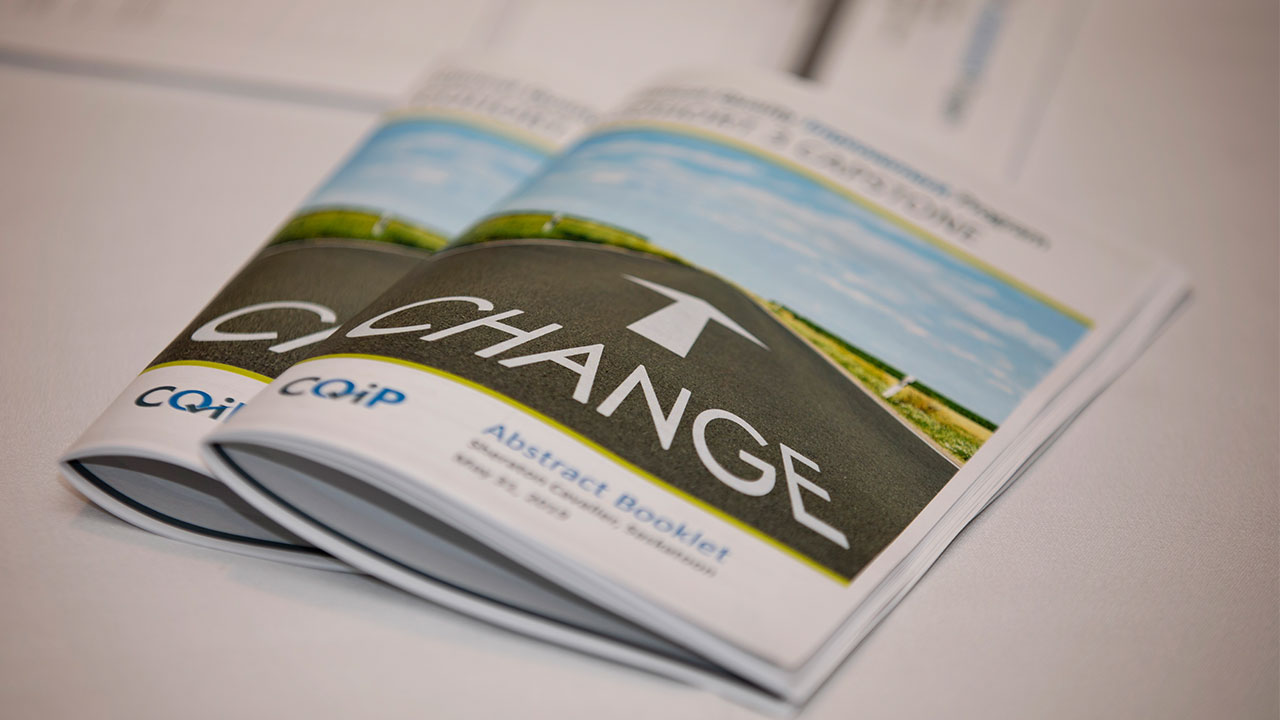
Moving the Dial: How Clinical QI Training is Changing Culture in a Provincial Health System (QI Power Hour)
- Speaker(s)
- Bonnie Brossart, Dr. Gary Groot, & Shari Furniss
Learn more about the Clinical Quality Improvement Program and how Saskatchewan is building clinician capability for leading quality improvement (QI).
- Date & Time
- September 18, 2020 9:30 am-10:30 am CST
- Location
- Online
- Event Host
- HQC

The Ladder of Inference (QI Power Hour)
- Speaker(s)
- Glenda Beauchamp
HQC’s Glenda Beauchamp talks about the ladder of inference and how to climb it safely to avoid misunderstandings.
- Date & Time
- July 17, 2020 9:30 am-10:30 am CST
- Location
- Online
- Event Host
- HQC

National Indigenous History Month with Lyndon Linklater (QI Power Hour)
- Speaker(s)
- Lyndon J Linklater
Knowledge Keeper Lyndon J Linklater is a powerful story teller that utilizes First Nation teachings that involve knowledge of ceremonies and mixes humour to deliver a poignant message.
- Date & Time
- June 19, 2020 9:30 am-10:30 am CST
- Location
- Online
- Event Host
- HQC

Working Remotely Series: Micro-Learning Campaigns (QI Power Hour)
- Speaker(s)
- Shari Furniss
Learning campaigns are a way to break down big ideas into bite-sized pieces. A learning campaign consists of lessons, resources and activities, delivered in small (“micro-learning”) chunks over a defined period of time.
- Date & Time
- May 29, 2020 9:30 am-10:30 am CST
- Location
- Online
- Event Host
- HQC
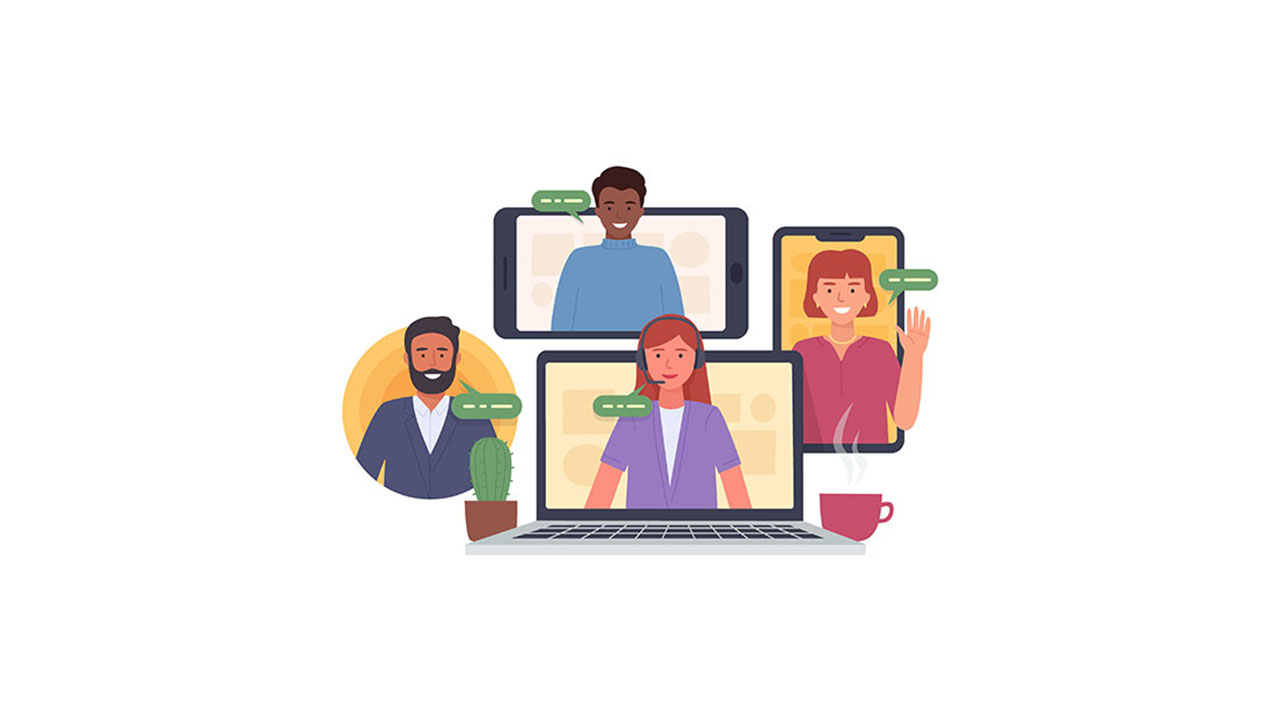
Working Remotely Series: Building Trust with Teams in a Virtual Environment (QI Power Hour)
- Speaker(s)
- Chelsea Schwartz
In this QI Power Hour, we cover some considerations and tools to support building trust with teams in a virtual environment
- Date & Time
- May 22, 2020 9:30 am-10:30 am CST
- Location
- Online
- Event Host
- HQC

Working Remotely Series: Learning to Adapt – Moving from In-person to Remote Learning (QI Power Hour)
- Speaker(s)
- Shari Furniss
In this QI Power Hour we look at ways of managing this shift from in-person to remote learning.
- Date & Time
- May 8, 2020 9:30 am-10:30 am CST
- Location
- Online
- Event Host
- HQC

Working Remotely Series: Safe and Well at Home – Self-Care During the COVID-19 Pandemic (QI Power Hour)
- Speaker(s)
- Dr. Adam Stacey
This webinar delineates the foundational elements of mental health and wellbeing and explores ways to develop, adapt and maintain personal wellbeing.
- Date & Time
- April 17, 2020 9:30 am-10:30 am CST
- Location
- Online
- Event Host
- HQC

Working Remotely Series: Hosting Online Meetings (QI Power Hour)
- Speaker(s)
- Chelsea Schwartz & Caroline Beck
In this Working Remotely webinar series, we discuss how to run virtual meetings more effectively.
- Date & Time
- April 3, 2020 9:30 am-10:30 am CST
- Location
- Online
- Event Host
- HQC

Working Remotely Series: The Basics (QI Power Hour)
- Speaker(s)
- Caroline Beck & Chelsea Schwartz
In this webinar, we share some free online tools that may assist you in a remote environment. During this webinar, we created a space for our community to discuss some of the challenges they are facing in this new work environment, as well as explore how members have designed their work environment to respond to these challenges.
- Date & Time
- March 27, 2020 9:30 am-10:30 am CST
- Location
- Online
- Event Host
- HQC

Promoting Social Inclusion Through Experience-based Design in Christchurch, New Zealand (QI Power Hour)
- Speaker(s)
- Nicola Woodward
This session explores how agencies can make a difference using experiences-based service design. Nicola shared some of the experiences that contributed to the transformation of a women’s refuge, and the founding of a unique centre of co-located human services in Christchurch, New Zealand.
- Date & Time
- February 27, 2020 2:00 pm-3:00 pm CST
- Location
- Online
- Event Host
- HQC

Health Networks in Saskatchewan (QI Power Hour)
- Speaker(s)
- Dr. Kevin Wasko, Sheila Anderson, & Dr. Rashaad Hansia
This session discusses Health Networks and the experience of uncoordinated care, tailored network teams and next steps in the development of Health Networks.
- Date & Time
- November 15, 2019 9:30 am-10:30 am CST
- Location
- Online
- Event Host
- HQC

Citizen Science in Public Health Policy: Leveraging the Power of Ubiquitous Tools (QI Power Hour)
- Speaker(s)
- Dr. Tarun Katapally
This Power Hour goes into the integration of citizen science, community-based participatory research, and systems science through ubiquitous tools to conduct population health research in the digital age.
- Date & Time
- October 25, 2019 9:30 am-10:30 am CST
- Location
- Online
- Event Host
- HQC

The Costs of Poverty to Saskatchewan: Why Do They Matter and How Do We Calculate Them? (QI Power Hour)
- Speaker(s)
- Charles Plante
This session talks about the Saskatoon Poverty Reduction Partnership’s 12 Bold Ideas to Eliminate Poverty in Saskatoon and how QI methods were used to inform their work.
- Date & Time
- September 6, 2019 9:30 am-10:30 am CST
- Location
- Online
- Event Host
- HQC

12 Bold Ideas to Eliminate Poverty in Saskatoon: A Closer Look at the Work of the Saskatoon Poverty Reduction Partnership (QI Power Hour)
- Speaker(s)
- Colleen Christopherson-Cote
In this webinar you will learn about the SPRP’s 12 Bold Ideas to Eliminate Poverty and take a closer look at how methods of QI were modified to collect and map system sectors. You will also learn about the role that evaluation played in the creation of the ideas and the continued monitoring and analysis and the complexity of the solutions.
- Date & Time
- July 18, 2019 9:30 am-10:30 am CST
- Location
- Online
- Event Host
- HQC

Bravely Leading Challenging Conversations (QI Power Hour)
- Speaker(s)
- Stephani Roy McCallum
The foundation of making any change initiative work in the long-term is our ability to talk through the issues, concerns, emotions, and possibilities – together. Learn how to have brave, honest conversations with others in this session.
- Date & Time
- June 19, 2019 9:30 am-10:30 am CST
- Location
- Online
- Event Host
- HQC

Going big with community-based improvement, a B.C. born approach (QI Power Hour)
- Speaker(s)
- Dr. Jennifer Mervyn, Christina Southey, & Nikita Soares
This session explores the transferable aspects of the change model, values, and approaches that proved successful within the BC Child and Youth Mental Heath and Substance Use Collaborative.
- Date & Time
- May 31, 2019 9:30 am-10:30 am CST
- Location
- Online
- Event Host
- HQC

Getting on the Same Page: the Difference Between Data for Improvement, Data for Research, and Data for Accountability (QI Power Hour)
- Speaker(s)
- Jessica Hamilton & Laura Schwartz
This session helps with selecting measures, as well as understanding perspectives that team members may be bring to your measurement discussion.
- Date & Time
- April 26, 2019 9:30 am-10:30 am CST
- Location
- Online
- Event Host
- HQC
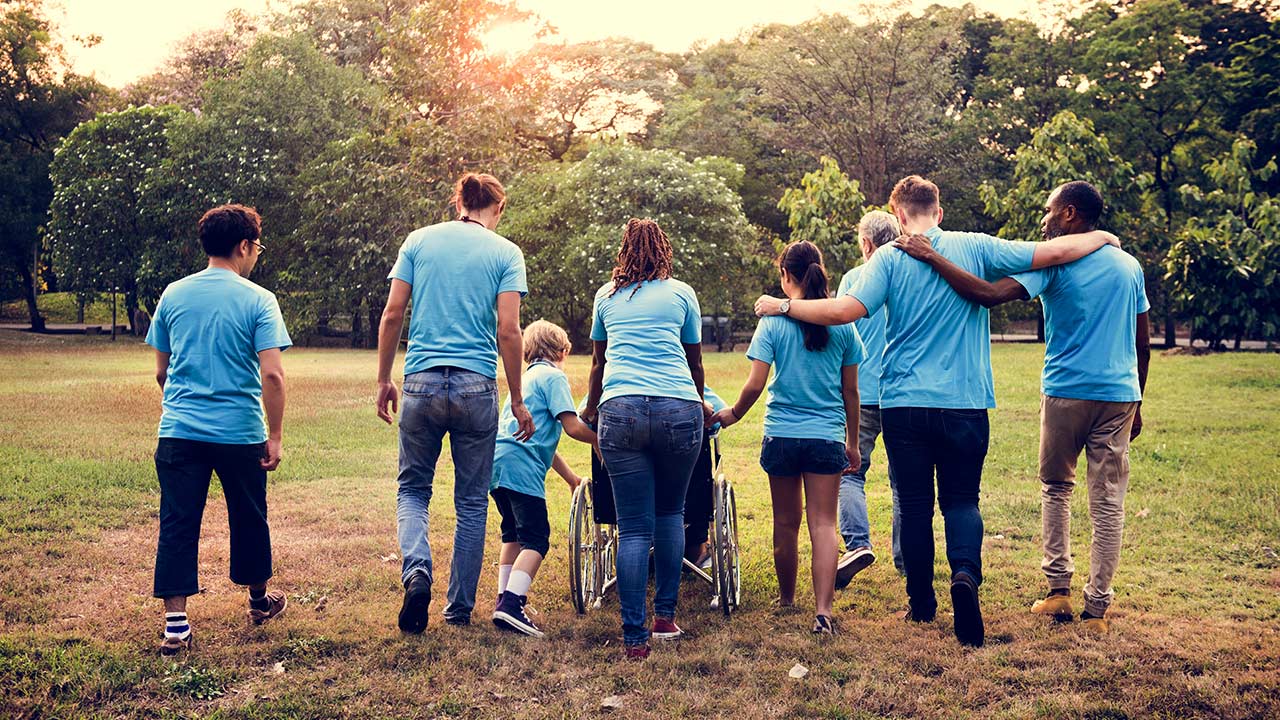
Improving the Quality of Health: Broadening our Perspectives (QI Power Hour)
- Speaker(s)
- Dr. Susan Shaw & Dr. Dennis Kendel
Explore the wide range of factors, other than health care, that influence health. This power hour goes over the “Social Determinants” of Health, as well as the fundamentals of upstream thinking.
- Date & Time
- March 15, 2019 11:00 am-12:00 pm CST
- Location
- Online
- Event Host
- HQC

Introduction to Graphic Facilitation (QI Power Hour)
- Speaker(s)
- Shari Furniss
Graphic facilitation is not an art class. It’s about using visual methods to enrich communication and understanding. This session, covers some basic techniques to get you started. Grab a marker and paper – this session is very hands-on!
- Date & Time
- February 27, 2019 9:30 am-10:30 am CST
- Location
- Online
- Event Host
- HQC
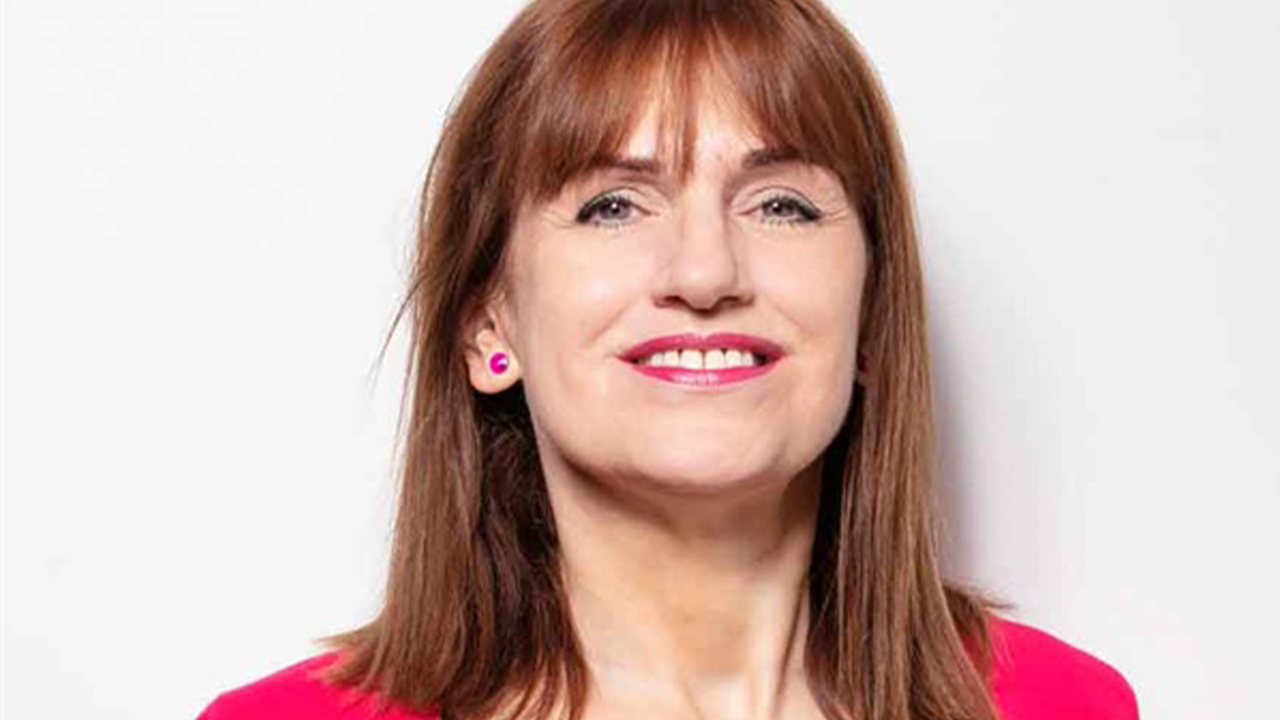
Leading Change and Improvement in a World That is Changing Fast (QI Power Hour)
- Speaker(s)
- Dr. Helen Bevan
In this power hour Dr. Bevan talks about change and improvement in a world that is changing fast
- Date & Time
- January 24, 2019 9:30 am-10:30 am CST
- Location
- ONline
- Event Host
- HQC
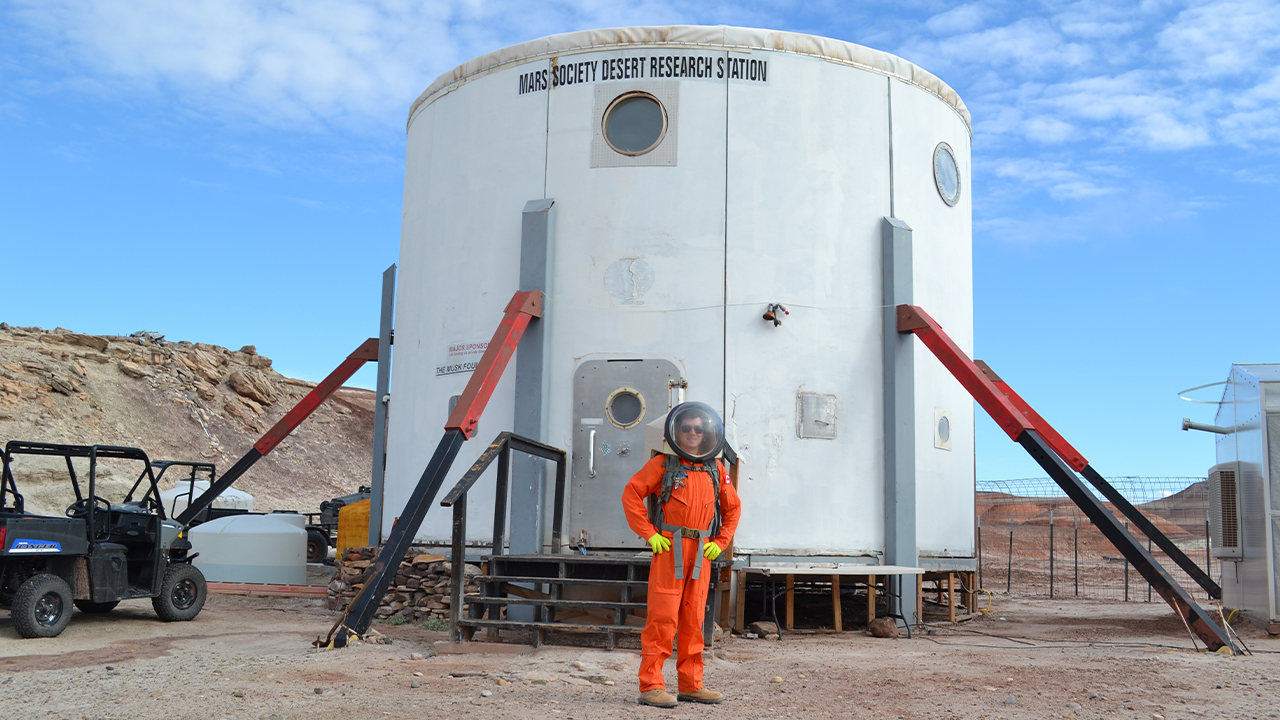
Learning About Learning: Insights from a Citizen Astronaut Candidate (QI Power Hour)
- Speaker(s)
- Doug Campbell
This webinar has Doug Campbell go over his learnings and reflections on Untethered Exploration’s framework for learning, how this framework supports accelerated self-improvement and yields better teams in relation to his astronaut training.
- Date & Time
- November 23, 2018 9:30 am-10:30 am CST
- Location
- Online
- Event Host
- HQC

10 “Simple” Ways to Improve Patient Care: Lessons Learned from Saskatchewan’s Emergency Department Waits and Patient Flow Initiative (QI Power Hour)
- Speaker(s)
- Suann Laurent, Sharon Garratt, Adrienne Danyliw, & Kyla Avis
Hear what Saskatchewan’s ED Waits and Patient Flow Initiative team has learned along their journey on how to improve patient care.
- Date & Time
- October 5, 2018 9:30 am-10:30 am CST
- Location
- Online
- Event Host
- HQC

Increase Your Success Rate with QI: The Highly Adoptable Improvement Model and Toolkit (QI Power Hour)
- Speaker(s)
- Dr. Chris Hayes
Learn all about QI in this session with DR. Chris Hayes as he goes over qi strategies, the Highly Adoptable model, and utilizing tools for improvement strategies.
- Date & Time
- September 14, 2018 9:30 am-10:30 am CST
- Location
- Online
- Event Host
- HQC

Improving Community Health and Well-being: Hub Tables in Saskatchewan (QI Power Hour)
- Speaker(s)
- Matthew Gray & Sarah Collins
This webinar talks about the creation of Hub tables across the province, valuable lessons learned, and how Hub tables might evolve and improve as integrated services become the new normal for communities.
- Date & Time
- June 22, 2018 9:30 am-10:30 am CST
- Location
- Online
- Event Host
- HQC

Catching the Improvement Bug: The Clinical Quality Improvement Program (QI Power Hour)
- Speaker(s)
- Shari Furniss, Dr. Shaqil Peermohamed & Dr. Erin Hamilton
Learn all about the Clinical Quality Improvement Program (CQIP), what makes it special, and get insight into the CQIP experience.
- Date & Time
- May 29, 2018 9:30 am-10:30 am CST
- Location
- Online
- Event Host
- HQC

The Drama Triangle… and How to Get off It! (QI Power Hour)
- Speaker(s)
- Dr. Sheryl Mills
This session is all about the drama triangle. Learn from Sheryl Mills on what exactly the drama triangle is and how to get off of it.
- Date & Time
- April 27, 2018 9:30 am-10:30 am CST
- Location
- Online
- Event Host
- HQC

Thinking Upstream: Intersectoral Quality Improvement for Better Health and Wellness (QI Power Hour)
- Speaker(s)
- Brandon Bennett
Learn how innovative programs around the world are working across sectors — including education, justice, and social services — to improve health and wellbeing.
- Date & Time
- March 16, 2018 9:30 am-10:30 am CST
- Location
- Online
- Event Host
- HQC

High-need, high-cost Patients in Saskatchewan: What We’re Learning About Their Needs and Health Service Use (QI Power Hour)
- Speaker(s)
- Meric Osman
In this session found out what administrative data can tell us about high-need, high-cost patients in Saskatchewan.
- Date & Time
- February 28, 2018 9:30 am-10:30 am CST
- Location
- Online
- Event Host
- HQC
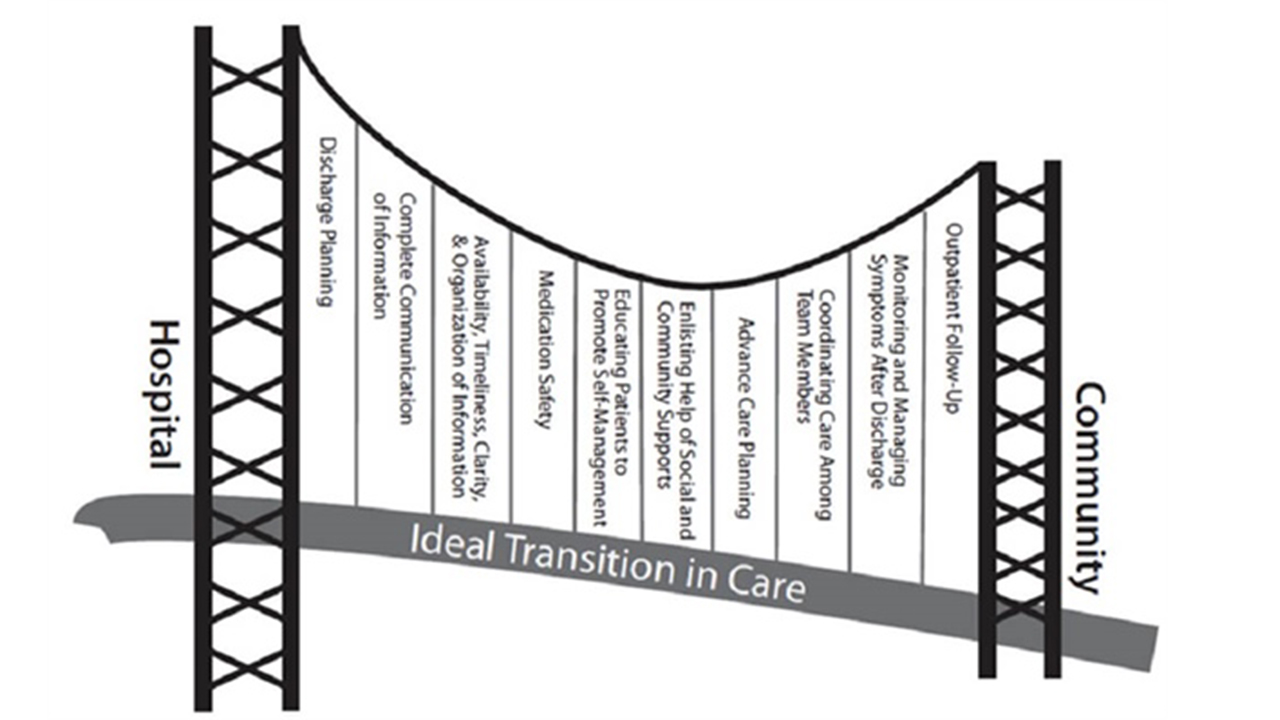
Connected Care Strategy – The Saskatchewan Journey Towards Improved Patient Flow (QI Power Hour)
- Speaker(s)
- Graham Fast & Sheila Anderson
This session goes over the development of the overarching strategy guiding the Connected Care work, as well as examples of on-the-ground implementation challenges and successes, both in hospitals as well as community settings.
- Date & Time
- January 19, 2018 9:30 am-10:30 am CST
- Location
- Online
- Event Host
- HQC
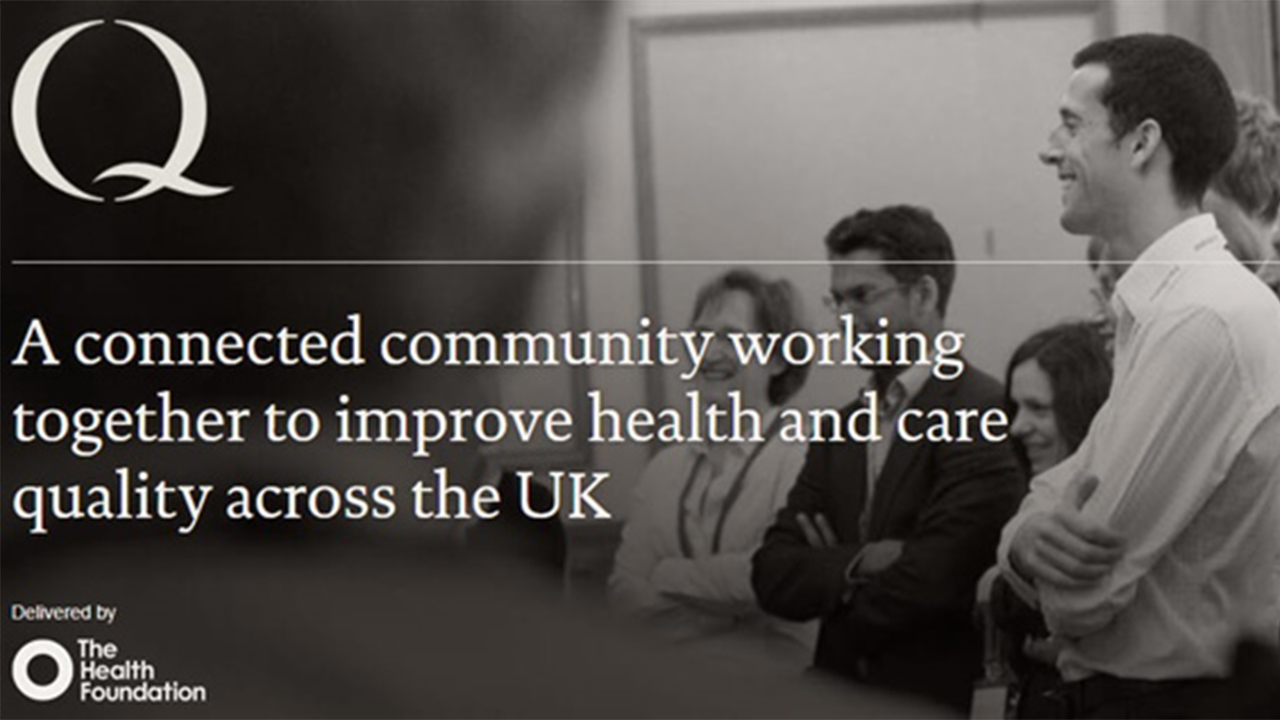
Leveraging Networks to Accelerate Improvement in the UK: The Q Community (QI Power Hour)
- Speaker(s)
- Stacey Lally & Ashlee Biggs
This session covers the story of Q; where it has come from and what Q members are trying to accomplish in the UK.
- Date & Time
- November 16, 2017 9:30 am-10:30 am CST
- Location
- Online
- Event Host
- HQC
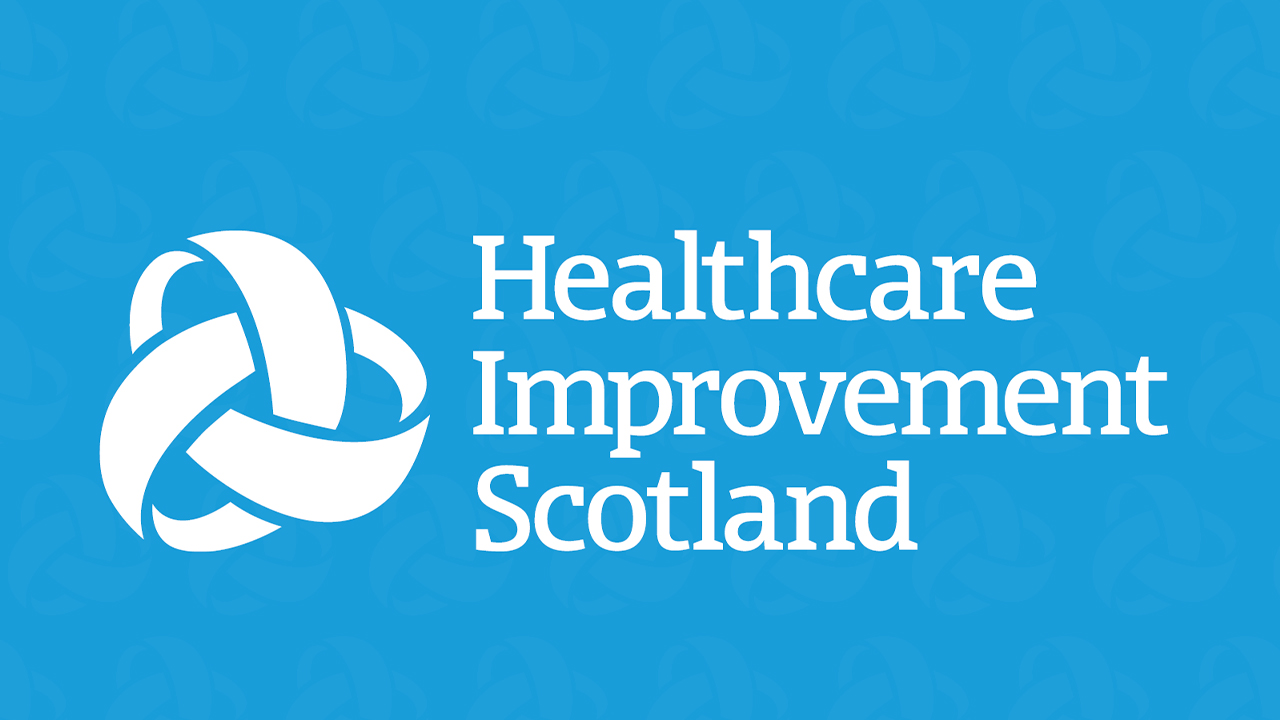
Scotland’s Quality Journey (QI Power Hour)
- Speaker(s)
- Dr. Brian Robson
Hear how Scotland is organising for Quality Improvement at scale. This session talks about the framework for high impact leadership created by the Institute of Healthcare Improvement to reflect on key components that have helped Scotland in its journey.
- Date & Time
- October 27, 2017 9:30 am-10:30 am CST
- Location
- Online
- Event Host
- HQC

Choosing and Creating the Correct Control Chart for Your Data (QI Power Hour)
- Speaker(s)
- Doug Campbell & Jessica Hamilton
This session covers selecting the correct type of control chart based upon the type of data you have
and walks you through how to create a control chart in Microsoft Excel.
- Date & Time
- September 29, 2017 10:30 am-11:30 am CST
- Location
- Online
- Event Host
- HQC
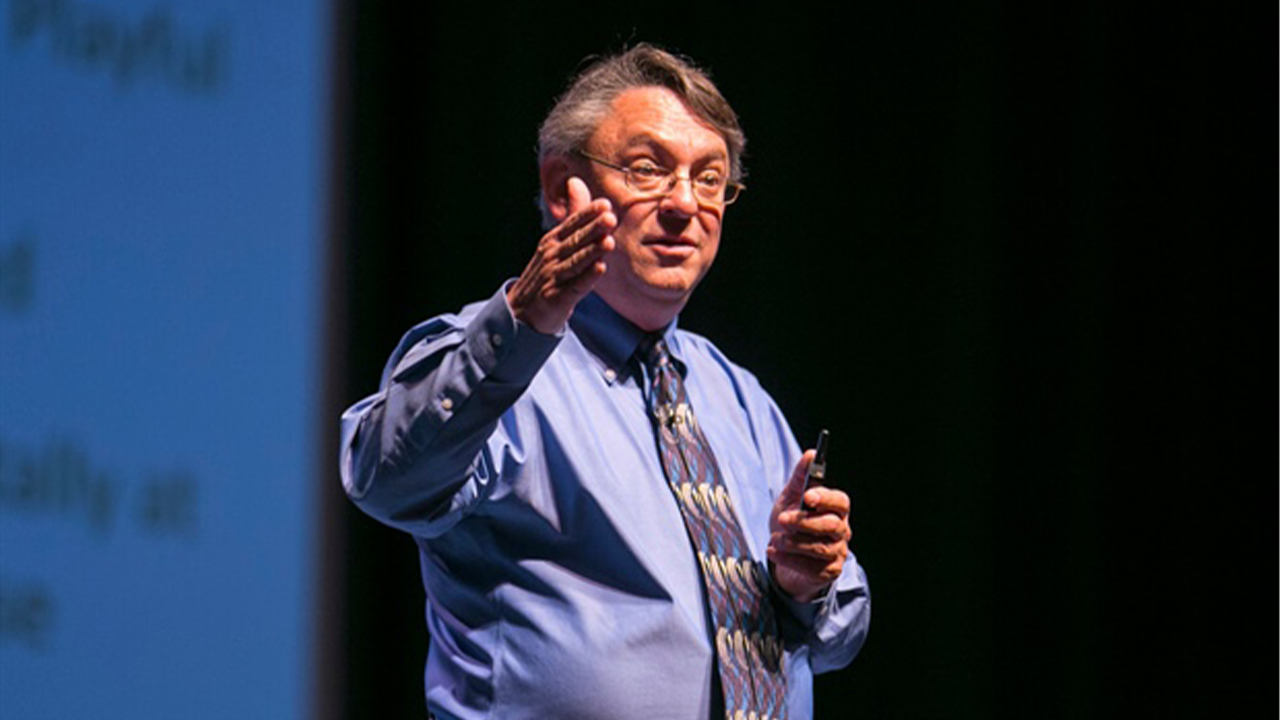
Creative Thinking for Serious People (QI Power Hour)
- Speaker(s)
- Paul Plsek
Learn how to stimulate yourself, and others, to be creative by learning about the differences in the mental process used for everyday thinking versus creative thinking; and applying the selected tools to generate creative ideas, alone or in groups.
- Date & Time
- September 1, 2017 10:30 am-11:30 am CST
- Location
- Online
- Event Host
- HQC

Health System Modeling (QI Power Hour)
- Speaker(s)
- Adrienne Danyliw & Yuan Tian
This power explores Health System Modeling. Learn how we have used System Modeling in the Saskatchewan healthcare system to date to help inform strategic planning to reduce wait times in the Emergency Departments, including how it has challenged us to take a truly systematic approach to address this issue.
- Date & Time
- June 16, 2017 10:30 am-11:30 am CST
- Location
- Online
- Event Host
- HQC

Understanding Variation: How to Identify and Manage Variation (QI Power Hour)
- Speaker(s)
- Doug Campbell
Identifying and understanding variation to help get continuous quality improvement efforts. This session builds on the March 2017 QI Power Hour which covered foundational concepts of variation and its importance to quality improvement work.
- Date & Time
- May 19, 2017 10:30 am-11:30 am CST
- Location
- Online
- Event Host
- HQC

How to Manage Change Using the Principles of ADKAR (QI Power Hour)
- Speaker(s)
- Dr. Sheryl Mills
In this session, learn about the ADKAR model and how to manage change using the principles in this model.
- Date & Time
- May 5, 2017 10:30 am-11:30 am CST
- Location
- Online
- Event Host
- HQC

Serious Fun: Fundamentals of Creating a Positive and Productive Culture (QI Power Hour)
- Speaker(s)
- Mike Easton
This webinar will show you how leadership starts and ends with culture. The ‘Argus Tribe’ culture is something you will want to learn about.
- Date & Time
- April 21, 2017 10:30 am-11:30 am CST
- Location
- Online
- Event Host
- HQC

Understanding Variation and its Importance to Quality Improvement (QI Power Hour)
- Speaker(s)
- Doug Campbell & Laura Schwartz
This first session in a multi-part series that will introduce you to foundational concepts regarding variation and quality improvement.
- Date & Time
- March 10, 2017 11:30 am-12:30 pm CST
- Location
- Online
- Event Host
- HQC

How the Way We Talk Can Change the Way We Work (QI Power Hour)
- Speaker(s)
- Shari Furniss
Explore the work of Kegan and Lahey’s 7 languages. In this webinar, we look at how groups communicate, and how this can hinder or help changing our culture.
- Date & Time
- February 24, 2017 11:30 am-12:30 pm CST
- Location
- Online
- Event Host
- HQC

Design Thinking for Innovation (QI Power Hour)
- Speaker(s)
- Colleen Kennedy
This session touches on some of the latest knowledge on how design tools and methods can be used to foster innovation. In this webinar, we explore how we can partner with the people we are designing for to create innovative solutions.
- Date & Time
- January 13, 2017 11:30 am-12:30 pm CST
- Location
- Online
- Event Host
- HQC